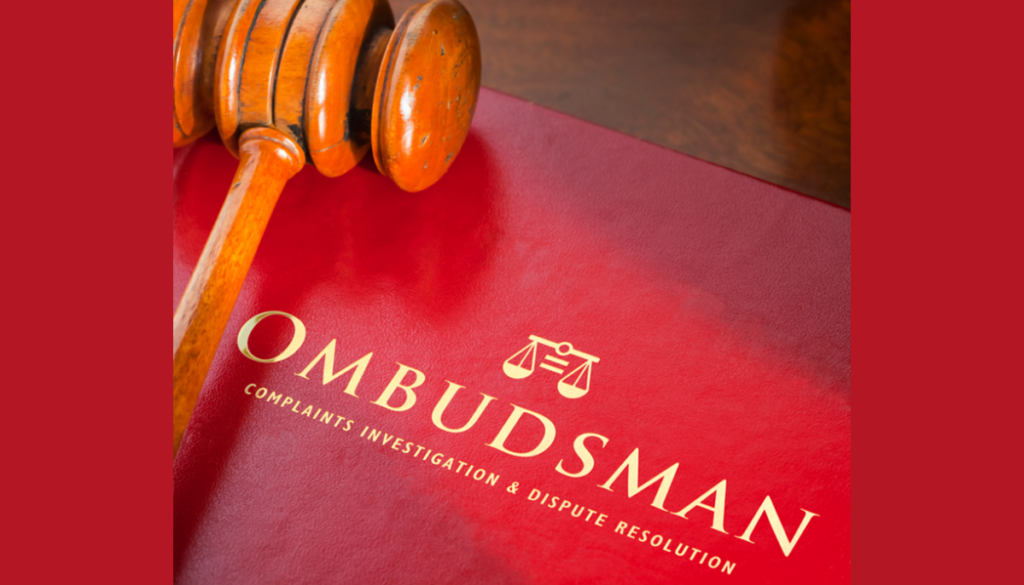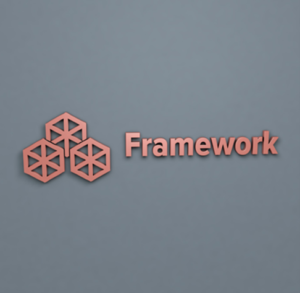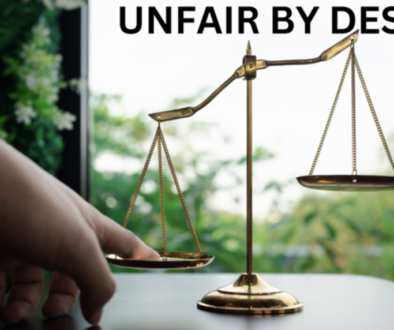CSA Proposes to Give the Ombudsman for Banking Services and Investments Binding Decision-Making Powers of Up to $350,000
Key Concepts
|
General
On November 30, 2023, the Canadian Securities Administrators (CSA) published a request for comment on proposed amendments to certain complaint handling provisions ofNational Instrument 31-103 Registration Requirements, Exemptions and Ongoing Registrant Obligations “NI 31-103” as well as proposed changes to Companion Policy 31- 103CP Registration Requirements, Exemptions and Ongoing Registrant Obligations “31-103CP” (the Proposal) .
The Proposal seeks to create a new independent dispute resolution service that would give the OBSI binding decision-making powers of up to $350,000 with no right of appeal. The Proposal is subject to a 90-day comment period which ends on February 28, 2024. The British Columbia Securities Commission and the Autorité des marchés financiers are not participating in the request for comment on the Proposal.
There are three versions of the Proposal, which differ as to the inclusion of appendices. To view the full Proposal, including all appendices, as published by the Ontario Securities Commission, (click here). To view a version of the Proposal published by: (a) the British Columbia Securities Commission excludes all Appendices except Appendix D (click here ) and (b) the Alberta Securities Commission which includes all Appendices except Appendix E (click here ).
|
This article summarizes the Proposal without any commentary or advocacy. The Private Capital Markets Association of Canada will set out the views of its members in other articles and materials. This article is for information purposes only to help readers understand the Proposal to allow them to derive their own views and conclusions. |
How OBSI Works Today
Presently, OBSI operates as a federally incorporated, not-for-profit organization that provides independent and impartial dispute resolution services between participating firms and their clients, free of charge and without the need for legal representation. Firms across Canada, with the exception of Québec, are mandated under subsection 13.16(6) of NI 31-103 to make OBSI available as the default independent dispute resolution or mediation service for their clients.
In resolving disputes, OBSI applies a ‘fairness standard‘, which involves considering what is fair to the parties in each specific complaint’s context. This standard takes into account general principles of good financial services and business practices, legal norms, regulatory policies, professional standards, and relevant codes of practice.
OBSI’s approach to dispute resolution is ‘inquisitorial’, where its investigators actively gather evidence, identify core issues, ask follow-up questions, and formulate recommendations based on their findings, which is different from the ‘adversarial’ process where parties present their cases independently.
The CSA states that OBSI’s inquisitorial approach provides procedural flexibility to address power imbalances between complainants and firms, acknowledging that firms often possess greater resources and specialized knowledge. The CSA believes this approach is essential for making OBSI’s services accessible to retail clients, as it allows for the application of only necessary and proportionate processes to each complaint. The CSA also believes it enables OBSI to offer fair access to its services, maintain efficiency for all parties involved, and reduces the likelihood of complainants abandoning the process due to its complexity.
During its investigation of complaints, OBSI initially tries to facilitate settlements between the complainant and the firm. If no settlement is reached, OBSI issues a non-binding recommendation for compensation, up to a limit of $350,000. However, in situations where OBSI recommends compensation, it lacks formal authority or mechanisms to compel a firm to comply with the payment.
Name and Shame is Not Working
The CSA’s Proposal has been influenced by several concerns and the observed ineffectiveness of the current ‘name and shame ’ system employed by OBSI. This system publishes the names of firms that do not comply with OBSI’s recommendations, yet it does not disclose the names of firms that settle for less than the recommended amounts.
Since OBSI’s recommendations are not mandatory, the CSA states that firms often negotiate settlements lower than what OBSI suggests, putting pressure on complainants to accept less than what may be fair or risk getting nothing at all. The CSA believes this situation can erode investor confidence in the fairness and effectiveness of the dispute resolution process, as lower settlements may indicate a power imbalance in favour of firms.
Key Elements of the Proposed Framework
 Overview of the Regulatory Regime
Overview of the Regulatory Regime
The Proposal set outs critical elements for improving dispute resolution through the services of an identified ombudservice, necessitating a comprehensive regulatory regime and stringent CSA oversight. Key aspects are set out below:
- Legislative Changes: New or amended legislation across local jurisdictions is required to implement the framework. This legislation would empower securities regulatory authorities to designate or recognize an Independent Dispute Resolution Service (“IDRS”), govern its operations, enforce membership among firms, and authorize the IDRS to issue binding decisions enforceable in court.
- NI 31-103 Requirements: The Proposal would require firms to maintain membership in the identified ombudservice, collaborate during investigations and reviews, and adhere to the final decisions made by the ombudservice. The Proposal also aims to minimize confusion for retail investors by prohibiting firms from using terms like “ombudsman” or “internal ombudservice” for their in-house complaint handling services. This is consistent with existing guidelines and similar prohibitions in the banking sector’s regulations
- Guidance on Compliance: The updates to 31-103CP would interpret the requirements of the rule amendments and guide compliance, discussing the handling of verbal complaints and the circumstances under which OBSI should be notified.
The framework is designed to bolster the efficiency and fairness of the dispute resolution process, providing an alternative to litigation under the CSA’s supervision. However, even if the Proposal is adopted by the CSA, it does not guarantee the enactment of the proposed legislative changes in any jurisdiction.
OBSI as the Potential Identified Ombudservice
Under the Proposal, OBSI is expected to be designated or recognized by CSA jurisdictions as the identified ombudservice in accordance with NI 31-103. OBSI would retain its role as an alternative dispute resolution service, with enhanced authority to make binding decisions to correct power imbalances between firms and complainants. Although using OBSI’s services would be voluntary for complainants, firms would be mandated to be members of OBSI, actively participate in the dispute resolution process, and abide by the final decisions or recommendations, which could involve monetary compensation or specific corrective actions.
Investigation and Review of a Complaint Before the Identified Ombudservice
The Proposal introduces a two-stage dispute resolution process to be conducted by the identified ombudservice, which is expected to maintain the current investigative processes of OBSI.
Stage 1 – Investigation and Recommendation Stage
The Investigation and Recommendation Stage would carry forward OBSI’s existing investigative approach, focusing on fact-finding and attempting to facilitate a settlement or issuing a recommendation based on the findings. This stage begins when a retail client brings a complaint to the identified ombudservice after it has not been resolved by the firm’s internal processes. Using OBSI’s inquisitorial approach, the ombudservice gathers information to facilitate a settlement or form a recommendation to resolve the dispute.
This stage aims to fairly resolve disputes while considering any power imbalances, such as resource disparities or the complainant’s lack of sophistication compared to the firm. The result is a recommendation from the ombudservice, which becomes binding and considered a final decision if neither party objects within a specified timeframe and the complainant remains engaged in the resolution process without initiating separate legal actions.
Stage 2 – Review and Decision Stage
The Review and Decision Stage in the proposed framework can be initiated by either the complainant or the firm by objecting in writing to the initial recommendation made by the identified ombudservice. A senior decision-maker, who was not involved in the investigation and recommendation stage, will review any objections while adhering to the fairness standard.
The identified ombudservice, in its review phase, would employ a process scaled to the nature of the complaint, known as the ‘essential process test’. This test, likely to be defined in future legislative amendments, seeks to ensure that only the most efficient, effective, and clear procedures are used to resolve disputes fairly. The ombudservice would have the discretion to apply a range of procedural tools, from inquisitorial to potentially adversarial, as long as they are deemed necessary for a fair resolution and do not overly burden either party involved. The CSA states that the adoption of adversarial tools would be rare, reserved for exceptional cases that specifically require such an approach under the essential process test.
Upon completion of the review, the ombudservice will issue a decision. The Proposal anticipates that detailed processes of the ombudservice will be outlined in governance documents or harmonized orders, including when a recommendation becomes final and conditions under which a complainant may be restricted from abandoning the process or starting litigation post-decision. CSA member approval would be required for these processes and any modifications proposed by the ombudservice. The ombudservice is expected to publish materials to clarify the processes under the new framework and develop forms and notices to ensure that all participants understand the procedure, their rights, and their responsibilities.
Final Decision of Identified Ombudservice
Under the Proposal, a final decision made by the identified ombudservice could mandate a firm to provide monetary compensation to a complainant or undertake specific corrective actions deemed appropriate in the circumstances. [NM1]
- If no party objects to the final recommendation at the Investigation and Recommendation Stage, then the decision is final and binding.
- If both parties object to the final recommendation at the Investigation and Recommendation Stage, then it would trigger the Review and Decision Stage and that decision will be final and binding.
- If only the complainant objects to the final recommendation at the Investigation and Recommendation Stage, then it would trigger the Review and Decision Stage and that decision will be final and binding.
- If only the firm objects to the final recommendation at the Investigation and Recommendation Stage, then it would trigger the Review and Decision Stage and that decision will be final and binding, unless the complainant withdraws from the dispute resolution process, as prescribed, and instead pursues a civil proceeding against the firm.
A distinctive feature of the proposed Canadian framework, compared to international practices, is that complainants are bound by the final decision if they initiate the review process. This differs from the systems in the United Kingdom and Australia, where complainants are only bound if they formally accept the ombudservice’s decision. The CSA believes this approach ensures a definitive, efficient, and equitable resolution for both parties.
The framework proposes a maximum monetary compensation limit of $350,000, mirroring OBSI’s current cap, with provisions for future review and potential increases. It also allows for the possibility of directing firms to take particular corrective actions, such as rectifying harmful misinformation.
No Statutory Right of Appeal; Juridical Review Only
The proposed framework for dispute resolution under the identified ombudservice, likely OBSI, does not include a statutory right of appeal to external bodies like securities tribunals or courts. Instead, it allows for judicial review in suitable situations to ensure decisions are fair, reasonable, and lawful.
The CSA states that the absence of an appeal right is deliberate, aiming to prevent reintroducing power imbalances, as firms typically have more resources to challenge decisions than complainants. The CSA believes appeals could add cost, delay, and complexity, potentially leading to an adversarial rather than an inquisitorial approach, which the framework seeks to maintain.
The CSA believes that robust oversight of the ombudservice and the essential process test will address procedural fairness adequately. Judicial review, where applicable, will offer a venue to address concerns about the decision-making process and the substance of the ombudservice’s final decisions, focusing on legal and procedural correctness rather than re-evaluating the entire case. This measure is expected to ensure fairness and maintain efficient accountability over decisions made by the ombudservice. The availability of judicial review will depend on the superior court where an application for review is filed.
Once the identified ombudservice renders a final decision, it can be filed with a superior court, conferring upon it the same enforceability as a court order. This feature enhances the decision’s authority and ensures compliance.
CSA Oversight
The CSA emphasizes the crucial need for proper and effective oversight of an IDRS that will have the authority to issue binding resolutions to retail clients. The CSA is actively developing an oversight regime that will ensure the IDRS’s independence while providing strong monitoring and responses from securities regulatory authorities. An existing Memorandum of Understanding (MOU) with OBSI outlines standards for governance, fairness, timeliness, resource allocation, and transparency, and mandates an independent review every five years.
With the prospect of OBSI becoming the identified ombudservice capable of making binding decisions, the CSA believes a more comprehensive oversight regime is necessary. This regime would mirror the oversight applied to Self-Regulatory Organizations (SROs), clearing agencies, and exchanges, potentially including statutory authority for the CSA to oversee the ombudservice’s operations and practices.
CSA oversight would involve harmonized orders outlining the terms and conditions for the ombudservice’s designation, including public interest requirements and obligations related to risk management, governance, fees, capacity, reporting, and public transparency. Approval powers would extend to the ombudservice’s key documents, such as Terms of Reference and procedural rules.
The CSA anticipates coordinated compliance examinations and monitoring, along with reporting under a new MOU among CSA jurisdictions. Tailored oversight practices for the identified ombudservice are expected to be developed in line with the proposed framework’s implementation.
Other Matters
The Proposal includes amendments to the existing regulatory framework, aiming to refine the definition of a “complaint” and enhance the role and responsibilities of firms within the dispute resolution process. Specifically, the amendments to NI 31-103 would clarify that a complaint is an “expression of dissatisfaction” related to a firm’s trading or advising activities.
Additionally, if a CSA jurisdiction has not recognized an identified ombudservice, the current system under section 13.16, where OBSI issues non-binding recommendations, would remain in effect.
Alternatives Considered
The CSA states it has considered alternatives to the proposed amendments and the framework, including the option to maintain the current system where OBSI can only make non-binding recommendations. However, the CSA believes that not granting binding authority to a designated or recognized IDRS would forgo potential improvements in investor protection and missed opportunities to enhance fairness, efficiency, and trust in the investment services sector. While the proposed framework reflects the CSA’s current position, feedback on various elements of the framework is still welcomed, indicating openness to further comments and suggestions on the proposed changes.
See Schedule “A” for the list of the CSA’s consultation questions which comments are due no later than February 28, 2024.
See also Schedule “B” which provides an Overview and Flowchart of Identified Ombudservice Processes under Proposed Framework – How a complaint will flow through the identified ombudservice’s process.
______________________________________
SCHEDULE “A”
CSA Consultation Questions
- The CSA contemplates that under the proposed framework, an IDRS would be authorized to issue binding decisions in circumstances where it is designated or recognized in a jurisdiction as the identified ombudservice. It is possible that some CSA jurisdictions may not designate or recognize OBSI as the identified ombudservice at the same time, resulting in the status quo (e.g., OBSI making non-binding recommendations only) applying in those jurisdictions until OBSI were designated or recognized as the identified ombudservice. If jurisdictions designate or recognize OBSI as the identified ombudservice at different times, what operational impacts, if any, would you anticipate from an IDRS being designated or recognized in some but not all jurisdictions? How can these impacts best be managed?
- The proposed rule amendments include a new provision requiring compliance with a final decision of the identified ombudservice. Under the proposed framework, we contemplate that both a recommendation or decision of the identified ombudservice could become a final decision that will be binding on the firm under certain circumstances. Specifically:
- With respect to a recommendation made by the identified ombudservice following the investigation and the recommendation stage, we contemplate the recommendation becoming a final decision where (i) a specified period of time has passed since the date of the recommendation, (ii) neither the firm nor the complainant has objected to the recommendation, and (iii) the complainant has not otherwise withdrawn from the process in a manner authorized by the identified ombudservice (the deeming provision). What are your general thoughts about the deeming provision and the circumstances that trigger it? Please also comment on whether 30, 60, 90 days would be an appropriate length of time to be specified for a recommendation to be deemed a final decision under the deeming provision
- With respect to the decision made by the identified ombudservice following the review and decision stage, we contemplate the decision becoming final where (i) a specified period of time has passed since the date of the decision (the post-decision period), and if the complainant did not trigger the review and decision stage, (ii) the complainant has not rejected the decision and has not otherwise withdrawn from the process in a manner authorized by the identified ombudservice. Please comment on the provision of this post-decision period and whether 30, 60 or 90 days would be the appropriate length for the post-decision period.
- The proposed framework contemplates that complainants could not reject a decision of the identified ombudservice if they initiated the second-stage review of the recommendation by objecting to it. What are your views on this approach?
- Please provide any comments on maintaining the compensation limit amount of $350,000.
- The proposed framework does not contemplate an appeal of a final decision to either a securities tribunal, or a statutory right of appeal to the courts (although parties could still seek judicial review of a final decision). What impact, if any, do you think the absence of an appeal mechanism will have on the fairness and effectiveness of the framework for parties to a dispute?
- Should the proposed framework include a statutory right of appeal to the courts or another alternative independent third-party procedure for disputes involving amounts above a certain monetary threshold (for example, above 00,000)? If so, please explain why.
- Are there elements of oversight, whether mentioned in this Notice or not, that you consider to be of particular importance in ensuring the objectives of the proposed framework are met? If so, please explain your rationale.
- Do you consider oversight, together with the other aspects of the proposed framework discussed in this Notice, to be sufficient to ensure that the identified ombudservice remains accountable?
- Please provide your views on the anticipated effectiveness of prohibiting the use of certain terminology for internal or affiliated complaint-handling services that implies independence, such as “ombudsman” or “ombudservice”, to mitigate investor confusion.
______________________________________
SCHEDULE “B”
Overview and Flowchart of Identified Ombudservice Processes Under Proposed Framework
See flow chart below:
______________________________________
CSA News Release
Canadian securities regulators propose binding regime for investment-related disputes
CSA Notice and Request for Comment – Registered Firm Requirements Pertaining to an Independent Dispute Resolution Service – Proposed Amendments to National Instrument 31-103 Registration Requirements, Exemptions and Ongoing Registrant Obligations and Proposed Changes to Companion Policy 31-103CP Registration Requirements, Exemptions and Ongoing Registrant Obligations


 Overview of the Regulatory Regime
Overview of the Regulatory Regime



